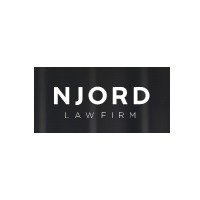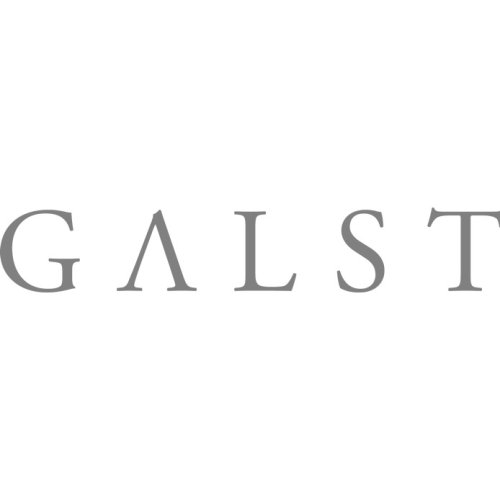Best Natural Resources Lawyers in Copenhagen
Share your needs with us, get contacted by law firms.
Free. Takes 2 min.
List of the best lawyers in Copenhagen, Denmark
About Natural Resources Law in Copenhagen, Denmark
Natural Resources Law in Copenhagen, Denmark, encompasses the regulations and policies governing the use and protection of the environment and natural resources. This includes laws related to water, minerals, land use, forestry, and marine resources. Denmark is known for its commitment to sustainable development and environmental protection, and Copenhagen serves as a hub for implementing these national and EU directives. The city integrates green spaces, water management, and renewable energy initiatives as part of its urban planning strategy.
Why You May Need a Lawyer
Legal advice in the field of natural resources is often necessary in various situations. For instance, if you are a business or developer planning a project that involves land use, environmental impact assessments might be required, and compliance with local and EU environmental laws must be ensured. Individuals or organizations contesting environmental permits, facing disputes over resource ownership, or involved in conservation efforts may also need legal support. Furthermore, lawyers can assist in navigating regulations regarding renewable energy projects, fishing rights, and mining operations.
Local Laws Overview
Denmark’s legal framework for natural resources combines national legislation and EU regulations. Key aspects include the Environmental Protection Act, which governs pollution control and environmental impact assessments. The Planning Act plays a critical role in urban development, ensuring sustainable land use and protecting ecological areas. The Subsoil Act regulates mineral resources, while the Renewable Energy Act promotes sustainable energy sources like wind and solar power. Copenhagen's local government enforces these laws and integrates sustainability into city planning through initiatives aimed at reducing carbon emissions and increasing green spaces.
Frequently Asked Questions
What is the role of the Danish Environmental Protection Agency?
The Danish Environmental Protection Agency is responsible for protecting the environment, overseeing the implementation of environmental laws, and regulating activities that impact natural resources, such as waste management and pollution control.
How does Copenhagen promote sustainable urban development?
Copenhagen promotes sustainable urban development through policies focused on increasing green spaces, enhancing public transportation, implementing energy-efficient building standards, and integrating renewable energy sources in city infrastructure.
What are the requirements for conducting an Environmental Impact Assessment (EIA) in Copenhagen?
In Copenhagen, an EIA is required for projects that may significantly affect the environment. The process involves assessing potential impacts, consulting with authorities and the public, and obtaining approval before proceeding with the project.
Are there specific regulations for renewable energy projects in Copenhagen?
Yes, Copenhagen follows the national Renewable Energy Act, which sets guidelines for the development and operation of renewable energy projects, including permissions, grid connection, and financial incentives for sustainable energy investments.
What legal steps are involved in resolving a dispute over resource ownership?
Resolving a dispute over resource ownership typically involves negotiations, mediation, or legal proceedings. Legal advice can help clarify rights and obligations, and courts can be involved if necessary to determine the outcome.
How are fishing rights regulated in Copenhagen?
Fishing rights are regulated through the Danish Fisheries Act, which aligns with EU fisheries policies, managing access, quotas, and conservation measures to ensure sustainable fish populations and ecosystems.
What are the legal obligations for businesses related to waste management?
Businesses in Copenhagen must comply with the Environmental Protection Act, which sets out waste management policies, including proper disposal, recycling responsibilities, and reducing waste production to minimize environmental impact.
How can individuals contribute to conservation efforts legally?
Individuals can engage in conservation efforts by participating in local programs, volunteering with environmental organizations, and following laws that protect natural resources. Legal support can also be sought for organizing or advocating for conservation initiatives.
What permits are necessary for land development in Copenhagen?
Land development in Copenhagen requires various permits, including planning permissions, building permits, and environmental approvals. Compliance with the Planning Act and local regulations is essential before starting development activities.
How does the legal system address marine resource protection?
Marine resource protection in Copenhagen is governed by the Marine Strategy Framework Directive and national laws. These regulations focus on maintaining good environmental status, sustainable use, and protecting marine biodiversity.
Additional Resources
For further information and assistance, you can contact the Danish Environmental Protection Agency, the Ministry of Environment of Denmark, and local municipal offices. Environmental organizations such as WWF Denmark and the Danish Society for Nature Conservation also provide resources related to natural resources and environmental conservation.
Next Steps
If you require legal assistance in matters related to natural resources, consider consulting a specialist lawyer or law firm with experience in environmental and natural resources law. It is advisable to seek professionals familiar with both Danish and EU regulations. Initial consultations can help clarify your situation and determine the best legal strategy for your needs.
Lawzana helps you find the best lawyers and law firms in Copenhagen through a curated and pre-screened list of qualified legal professionals. Our platform offers rankings and detailed profiles of attorneys and law firms, allowing you to compare based on practice areas, including Natural Resources, experience, and client feedback.
Each profile includes a description of the firm's areas of practice, client reviews, team members and partners, year of establishment, spoken languages, office locations, contact information, social media presence, and any published articles or resources. Most firms on our platform speak English and are experienced in both local and international legal matters.
Get a quote from top-rated law firms in Copenhagen, Denmark — quickly, securely, and without unnecessary hassle.
Disclaimer:
The information provided on this page is for general informational purposes only and does not constitute legal advice. While we strive to ensure the accuracy and relevance of the content, legal information may change over time, and interpretations of the law can vary. You should always consult with a qualified legal professional for advice specific to your situation.
We disclaim all liability for actions taken or not taken based on the content of this page. If you believe any information is incorrect or outdated, please contact us, and we will review and update it where appropriate.

















